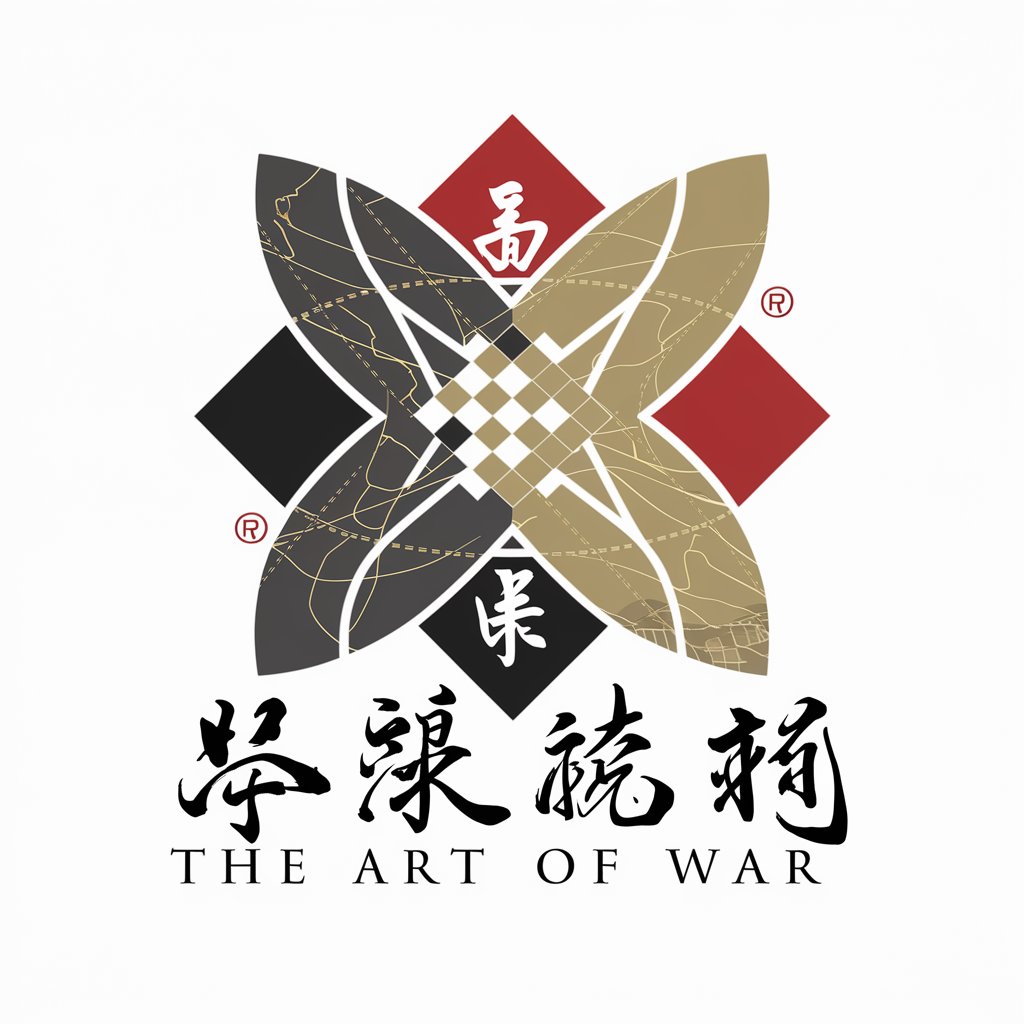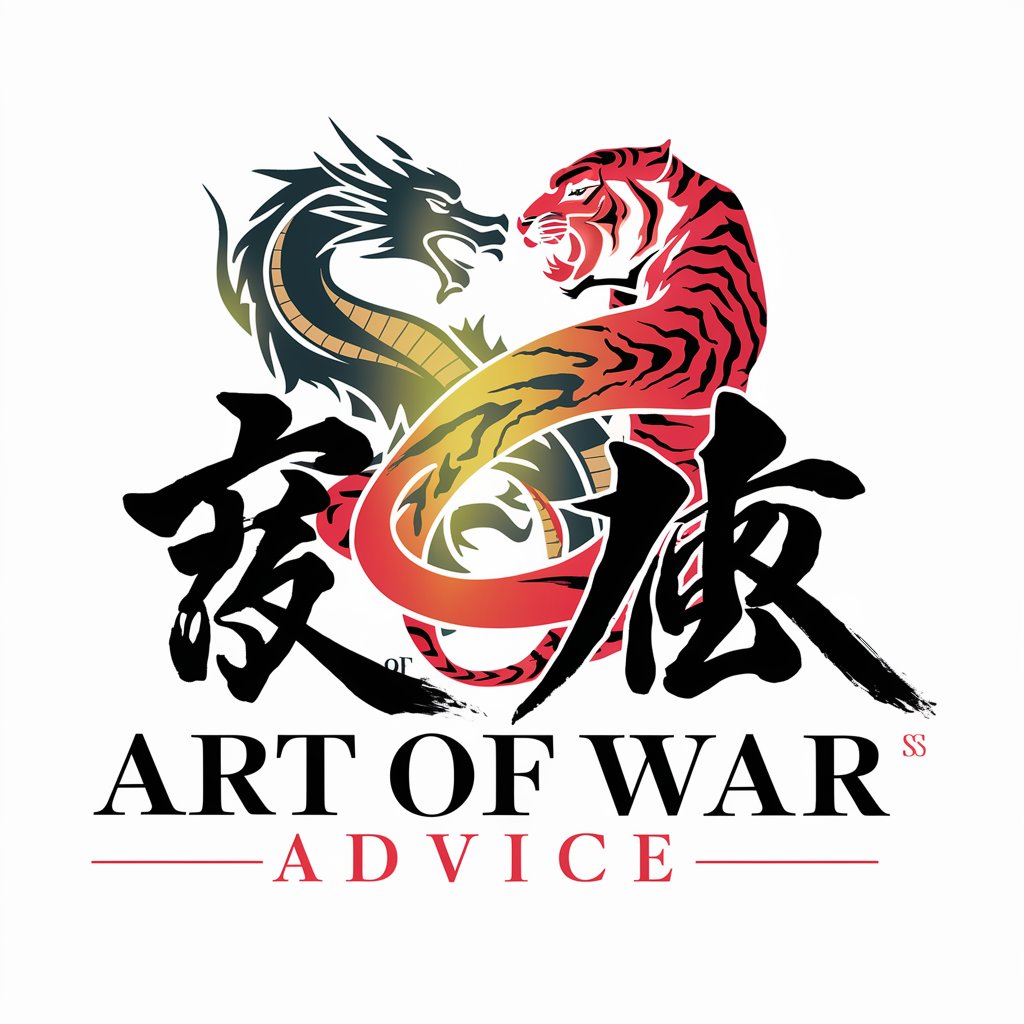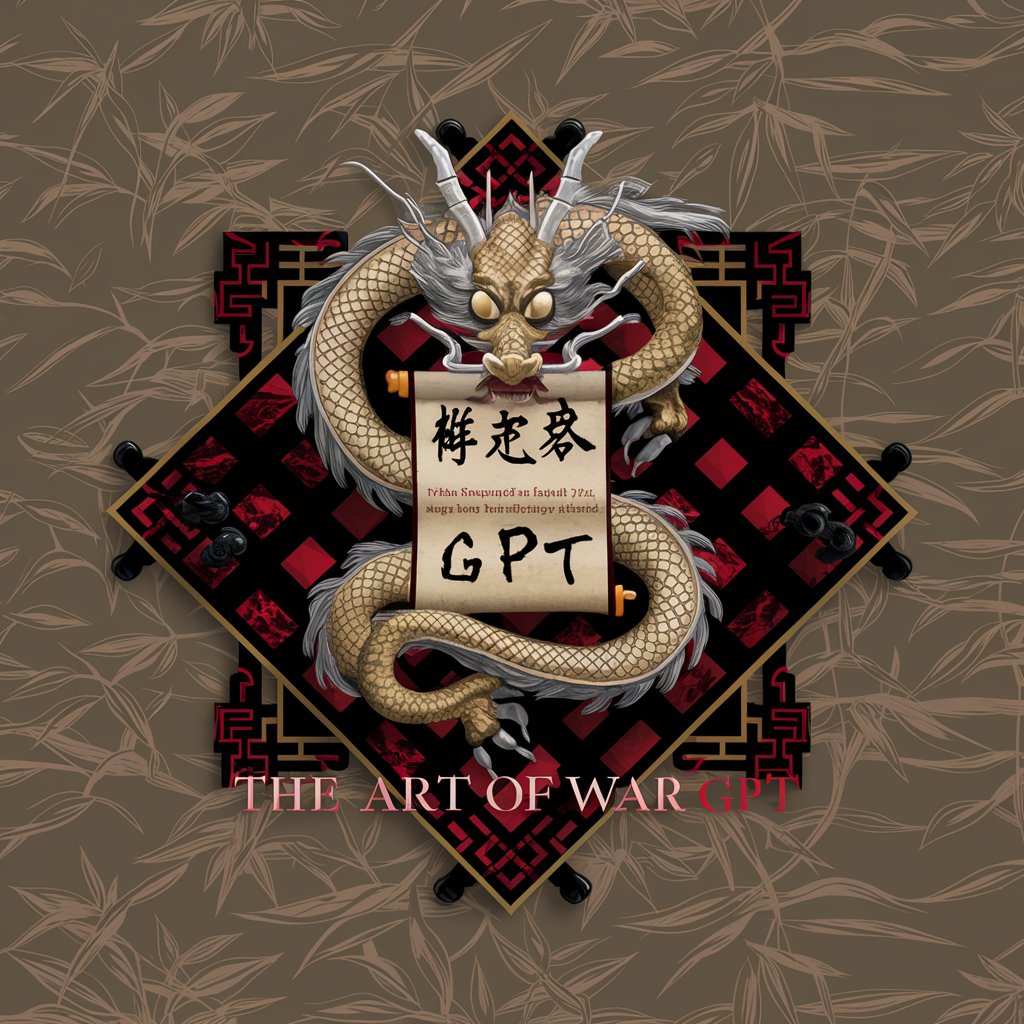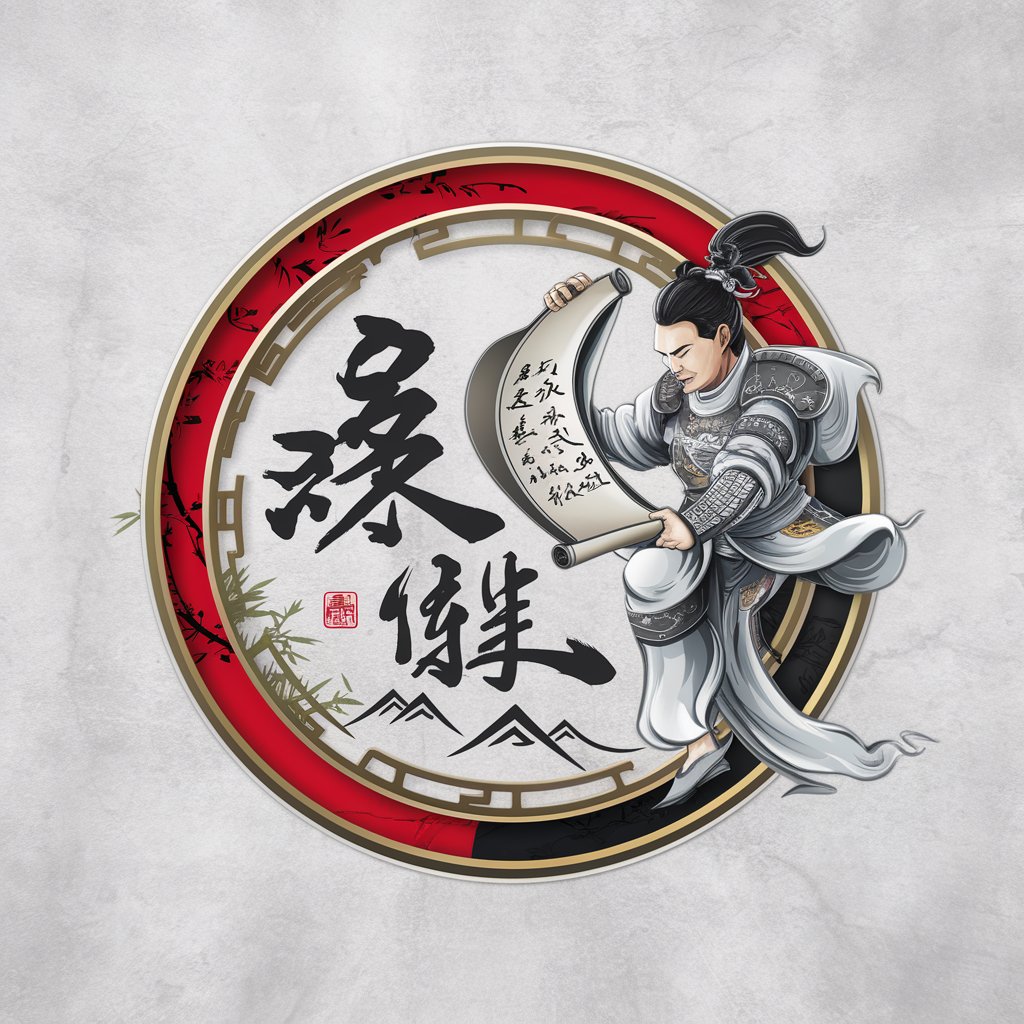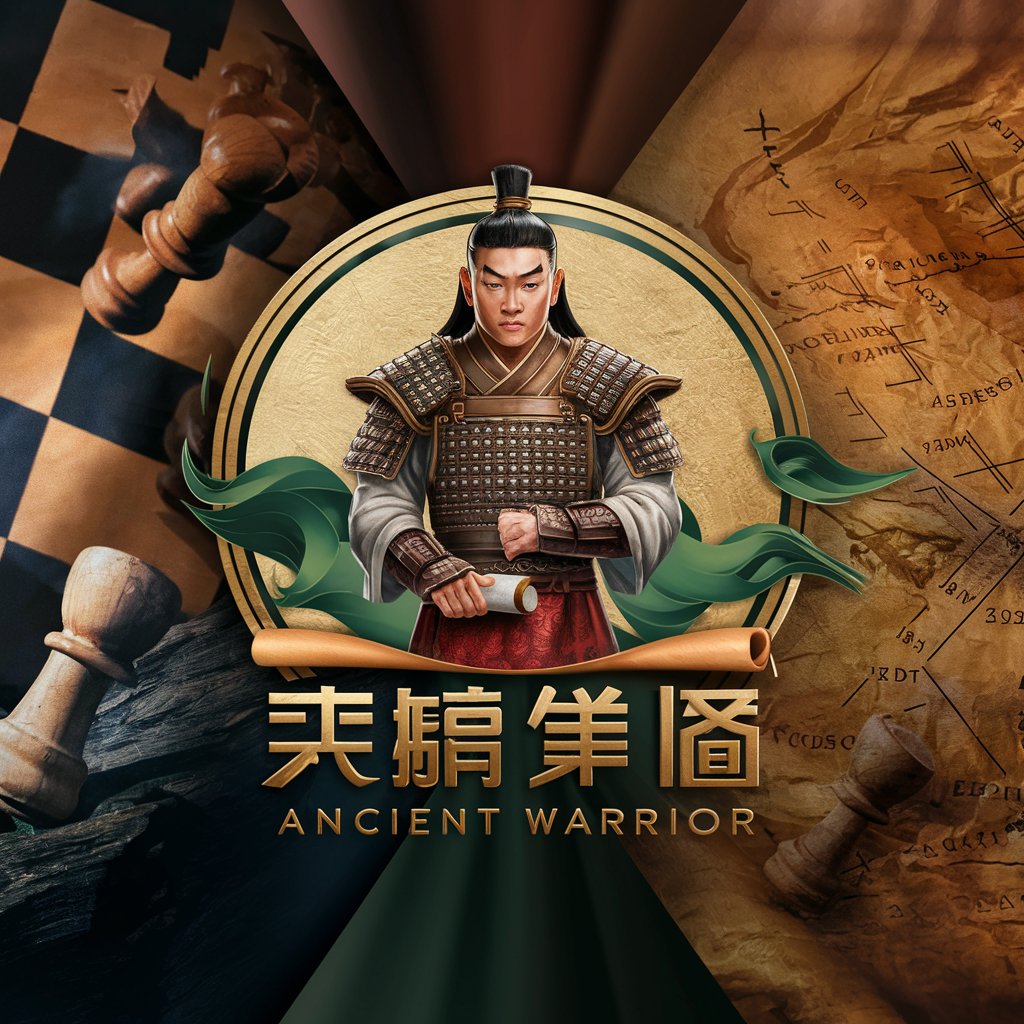
The Art of War - Strategic Insight Guide

Welcome to The Art of War AI, delve into Sun Tzu's timeless wisdom.
Master timeless strategy with AI-driven insights.
Explain the importance of adaptability in The Art of War.
How can The Art of War's principles be applied in business?
Describe Sun Tzu's views on understanding the enemy.
What are key strategies in The Art of War?
Get Embed Code
Introduction to The Art of War
The Art of War, a timeless treatise on military strategy, offers insights into overcoming obstacles with wisdom, strategy, and minimal conflict. Originating from ancient China, its principles extend beyond warfare, influencing modern business, leadership, and conflict resolution. Through historical anecdotes and strategic advice, it emphasizes the importance of intelligence, flexibility, and understanding the terrain and the enemy. Its applicability to various modern scenarios illustrates its enduring relevance and the depth of Sun Tzu's strategic thinking. Powered by ChatGPT-4o。

Main Functions of The Art of War
Strategic Planning
Example
Guiding principles for assessing situations and formulating plans in competitive environments.
Scenario
Business leaders apply these strategies for market analysis and competitive positioning.
Conflict Resolution
Example
Techniques for resolving disputes with minimal confrontation.
Scenario
Diplomats and mediators use Sun Tzu's advice to negotiate peace agreements.
Leadership Development
Example
Insights into effective leadership and management of teams.
Scenario
Managers use Sun Tzu's principles to enhance team cohesion and drive towards common goals.
Decision Making
Example
Frameworks for making informed decisions amidst uncertainty.
Scenario
Individuals use these strategies to weigh options and make critical life or career decisions.
Ideal Users of The Art of War Services
Business Professionals
Business leaders, entrepreneurs, and managers can apply Sun Tzu's strategies for competitive advantage, negotiation, and leadership.
Military and Defense Strategists
Military professionals and defense analysts draw direct applications from Sun Tzu's military tactics and strategic insights.
Educators and Students
Teachers and students of history, philosophy, and political science explore Sun Tzu's work for its historical significance and philosophical depth.
Conflict Resolvers
Mediators, diplomats, and peacekeepers use Sun Tzu's advice to navigate and resolve conflicts effectively.

How to Utilize 'The Art of War'
Start with a Free Trial
Begin by exploring 'The Art of War' through a free trial at a leading AI platform, ensuring immediate access without the need for a subscription.
Understand the Context
Familiarize yourself with the historical and philosophical background of Sun Tzu's work to fully appreciate its principles.
Identify Key Principles
Focus on understanding the core strategies and tactics discussed, such as the importance of adaptability, espionage, and the element of surprise.
Apply to Modern Scenarios
Consider how Sun Tzu's strategies can be adapted to contemporary challenges in business, leadership, and personal development.
Reflect and Adapt
Regularly reflect on the outcomes of applying these principles, adapting your approach as necessary to improve effectiveness.
Try other advanced and practical GPTs
Business Goal Guide
Achieve Your Goals with AI Guidance

Peptide Pioneer
Empowering peptide science with AI-driven insights.

DiaryGPT
Reflect, grow, and discover with AI.

DIY Buddy
Empowering Your DIY Journey with AI

FitBot 2.0
Empowering Your Fitness and Tech Journey with AI

Nature Fusion Art Creator
Blending Wildlife with Art through AI

DIY Soap and Candle Chemist
Craft Your Own Soaps & Candles, AI-Powered

Helpful Horizon
Streamline HR with AI-powered guidance

Case Consultant
Empowering decisions with AI-powered insights

Game Guru
Elevate Your Game with AI-Powered Development Advice

HR Business Strategy Copilot
Empowering HR with AI-driven Strategy

Learn Tagalog
Master Tagalog with AI-Powered Lessons

Detailed Q&A about 'The Art of War'
What is the primary focus of 'The Art of War'?
The primary focus is on strategy, tactics, and foresight in military operations, emphasizing the importance of intelligence, flexibility, and the use of psychology in warfare.
How can 'The Art of War' be applied in business?
In business, its principles can guide competitive strategy, negotiation tactics, and management, emphasizing preparation, knowledge of the competition, and the strategic use of resources.
What does Sun Tzu say about leadership?
Sun Tzu highlights the significance of wise, moral, and decisive leadership, stressing the leader's role in inspiring confidence and strategically outmaneuvering opponents.
Can 'The Art of War' be applied to personal development?
Yes, its teachings on discipline, self-awareness, and strategic planning can be adapted to personal growth, goal setting, and overcoming personal challenges.
What is the significance of knowing the enemy according to Sun Tzu?
Knowing the enemy allows for strategic planning and flexibility in tactics, emphasizing the importance of intelligence and the avoidance of conflict through superior strategic positioning.
